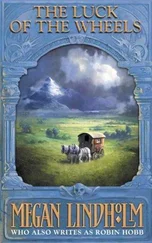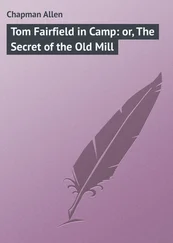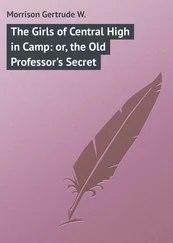L. Camp - The Wheels of If
Здесь есть возможность читать онлайн «L. Camp - The Wheels of If» весь текст электронной книги совершенно бесплатно (целиком полную версию без сокращений). В некоторых случаях можно слушать аудио, скачать через торрент в формате fb2 и присутствует краткое содержание. Жанр: Книги. Описание произведения, (предисловие) а так же отзывы посетителей доступны на портале библиотеки ЛибКат.
- Название:The Wheels of If
- Автор:
- Жанр:
- Год:неизвестен
- ISBN:нет данных
- Рейтинг книги:4 / 5. Голосов: 1
-
Избранное:Добавить в избранное
- Отзывы:
-
Ваша оценка:
- 80
- 1
- 2
- 3
- 4
- 5
The Wheels of If: краткое содержание, описание и аннотация
Предлагаем к чтению аннотацию, описание, краткое содержание или предисловие (зависит от того, что написал сам автор книги «The Wheels of If»). Если вы не нашли необходимую информацию о книге — напишите в комментариях, мы постараемся отыскать её.
The Wheels of If — читать онлайн бесплатно полную книгу (весь текст) целиком
Ниже представлен текст книги, разбитый по страницам. Система сохранения места последней прочитанной страницы, позволяет с удобством читать онлайн бесплатно книгу «The Wheels of If», без необходимости каждый раз заново искать на чём Вы остановились. Поставьте закладку, и сможете в любой момент перейти на страницу, на которой закончили чтение.
Интервал:
Закладка:
"There, there," said Park. "The good Lord watches over all of us. By the way, what were you before your trouble started?"
"I taught singing."
Park thought several "frickful aiths." If a singing teacher, or somebody equally incompetent for his kind of work, were in his body now . . .
He lit a pipe and talked soothingly and inconsequentially to the man, who though not in a pleasant mood, was too grateful for a bit of company to discourage him. Finally he got what he was waiting for. A husky male nurse came in to take the patient's temperature and tell Park that his time was up.
Park hung around, on one excuse or another, until the nurse had finished. Then he followed the nurse out and grasped his arm.
"What is it, Hallow?" asked the nurse.
"Are you poor Noggle's regular attendant?"
"Yes."
"Got any kinfolk, or people you like specially, in the priesthood?"
"Yes, there's my Aunt Thyra. She's a nun at the New Lindisfarne Abbey."
"Like to see her advanced?"
"Why—I guess so; yes. She's always been pretty good to me."
"All right. Here's what you do. Can you get out, or send somebody out, to telephone Noggle's condition to me every morning before noon?"
The nurse guessed he could. "All right," snapped Park. "And it won't do anybody any good if anybody knows you're doing it, understand?" He realized that his public-prosecutor manner was creeping back on him. He smiled benignly. "The Lord will bless you, my son."
* * *
Park telephoned Dunedin; asked him to learn the name of somebody who dwelt on the top floor of the apartment house next door, and to collect one ladder, thirty feet of rope, and one brick. He made him call back the name of the top-floor tenant. "But Hallow, what in the name of Patrick do you want a brick for . . ."
Park, chuckling, told him he'd learn. When he got off the folkwain at Mercia Street, he didn't walk boldly up to his own house. He entered the apartment house next door and said he was calling on Mrs. Figgis, his clericals constituting adequate credentials. When the elevator-man let him out on the top floor, he simply climbed to the roof and whistled for Monkey-face. He directed Dunedin in the tieing of the end of the rope to the brick, the heaving thereof to the roof of the apartment house, and the planting of the ladder to bridge the ten-foot gap. After that it was a simple matter for Park to lower himself to his own roof, without being intercepted by the watchdogs in front of his house.
As soon as he got in, the phone rang. A sweetness-and-light voice at the other end said: "This is Cooley, Hallow. Every time I've called your man has said you were out or else that you couldn't be bothered!"
"That's right," said Park. "I was."
"Yes? Anyway, we're all giving praises to the Lord that you were spared."
"That's fine," said Park.
"It surely is a wonderful case of how His love watches over us—"
"What's on your mind, Cooley?" said Park, sternly repressing a snarl of impatience.
"Oh—uh—what I meant was, will you give your usual sermon next Sunday?"
Park thought quickly. If he could give a sermon and get away with it, it ought to discourage the people who were trying to prove the bishop loony. "Sure I will. Where are you calling from?"
"Why—uh—the vestry." Some damned assistant, thought Park. "But, Hallow, won't you come up tonight? I'm getting some of the parishioners together in the chapel for a homish thanksgiving stint—with hymns of—"
"I'm afraid not," said Park. "Give 'em my love anyway. There goes my doorbell. Bye."
He marched into the library, muttering. Dunedin asked: "What is it, Hallow?"
"Gotta prepare a goddam sermon," said Park, taking some small pleasure at his thane's thane's expression of horror.
Fortunately the bishop was an orderly man. There were manuscripts of all his sermons for the past five years, and phonograph records (in the form of magnetized wire) of several. There was also plenty of information about the order of procedure in a Celtic Christian service. Park set about concocting a sermon out of fragments and paragraphs of those the bishop had delivered during the past year, playing the spools of wire over and over to learn the bishop's inflections. He wished he had some way of getting the bishop's gestures, too.
He was still at it next day when he dimly heard his doorbell. He thought nothing of it, trusting to Dunedin to turn the visitor away, until Monkey-face came in and announced that a pair of knicks awaited without.
Park jumped up. "Did you let 'em in?"
"No, Hallow, I thought—"
"Good boy! I'll take care of 'em."
* * ** * *
The larger of the two cops smiled disarmingly. "Can we come in, Hallow, to use your wiretalker?"
"Nope," said Park. "Sorry."
The knick frowned. "In that case we gotta come in anyway. Mistrust of unlawful owning of pipe." He put his foot in the door crack.
A pipe, Park knew, was a gun. He turned and stamped on the toe of the shoe, hard; then slammed the door shut as the foot was jerked back. There were some seconds of "frickful aiths" wafting through the door, then the pounding of a fist against it.
"Get a warrant!" Park yelled through the door. The noise subsided. Park called Dunedin and told him to lock the other entrances. Presently the knicks departed. Park's inference, based upon what he had been able to learn of Vinland law, that they would not force an entrance without a warrant, had proved correct. However, they would be back, and there is nothing especially difficult about "finding" an illegal weapon in a man's house, whether he had one before or not.
So Park packed a suitcase, climbed to the roof of the adjoining apartment, and went down the elevator. The elevator man looked at him in a marked manner. Once in the street, he made sure nobody was looking, and slapped on his mustache and glasses. He pulled his bonnet well down to hide his undyed hair, and walked over to Allister Park's place. There he telephoned Dunedin, and directed him to call the city editors of all the pro-bishop newspapers and tip them off that an attempt to frame the bishop impended. He told Dunedin to let the reporters in when they came; the more the better. Preferably there should be at least one in every room. Now, he thought, let those flatfeet try to sneak a gun into one of my bureau drawers so they can "find" it and raise a stink.
He spent the night at the apartment, and the next day, having gotten his sermon in shape, he paid a visit to his church. He found a functionary of some sort in an office, and told him that he, Allister Park, was considering getting married in St. Columbanus', and would the functionary (a Th. Morgan) please show him around? Th. Morgan was pleased to; Dr. Cooley usually did that job, but he was out this afternoon. Park looked sharply through his phoney spectacles, memorizing the geography of the place. He wished now he'd passed up the sermon for one more week, and had instead attended next Sunday's service as Allister Park, so that he could see how the thing was done. But it was too late now. Morgan broke in on his thoughts: "There's Dr. Cooley now, Thane Park; wouldn't you like to meet him?"
"Ulp," said Park. "Sorry; got to see a man. Thanks a lot." Before the startled cleric could protest, Park was making for the door as fast as he could go without breaking into a run. The plump, rosy young man in pince-nez, whom Park saw out of the corner of his eye, must be Cooley. Park had no intention of submitting his rather thin disguise to his assistant's inspection.
He telephoned the bishop's home. The other people in the lunchroom were startled by the roar of laughter that came through the glass of his telephone booth as Dunedin described the two unhappy cops trying to plant a gun in his house under the noses of a dozen hostile wise-cracking reporters. Monkey-face added: "I—I took the freedom, your hallowship, of finding out that two of the newsers live right near here. If the knicks try that again, and these newsers are at home, we could wirecall them over."
Читать дальшеИнтервал:
Закладка:
Похожие книги на «The Wheels of If»
Представляем Вашему вниманию похожие книги на «The Wheels of If» списком для выбора. Мы отобрали схожую по названию и смыслу литературу в надежде предоставить читателям больше вариантов отыскать новые, интересные, ещё непрочитанные произведения.
Обсуждение, отзывы о книге «The Wheels of If» и просто собственные мнения читателей. Оставьте ваши комментарии, напишите, что Вы думаете о произведении, его смысле или главных героях. Укажите что конкретно понравилось, а что нет, и почему Вы так считаете.











